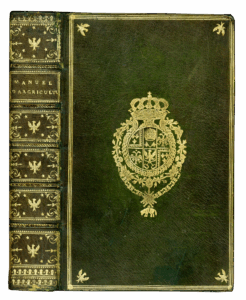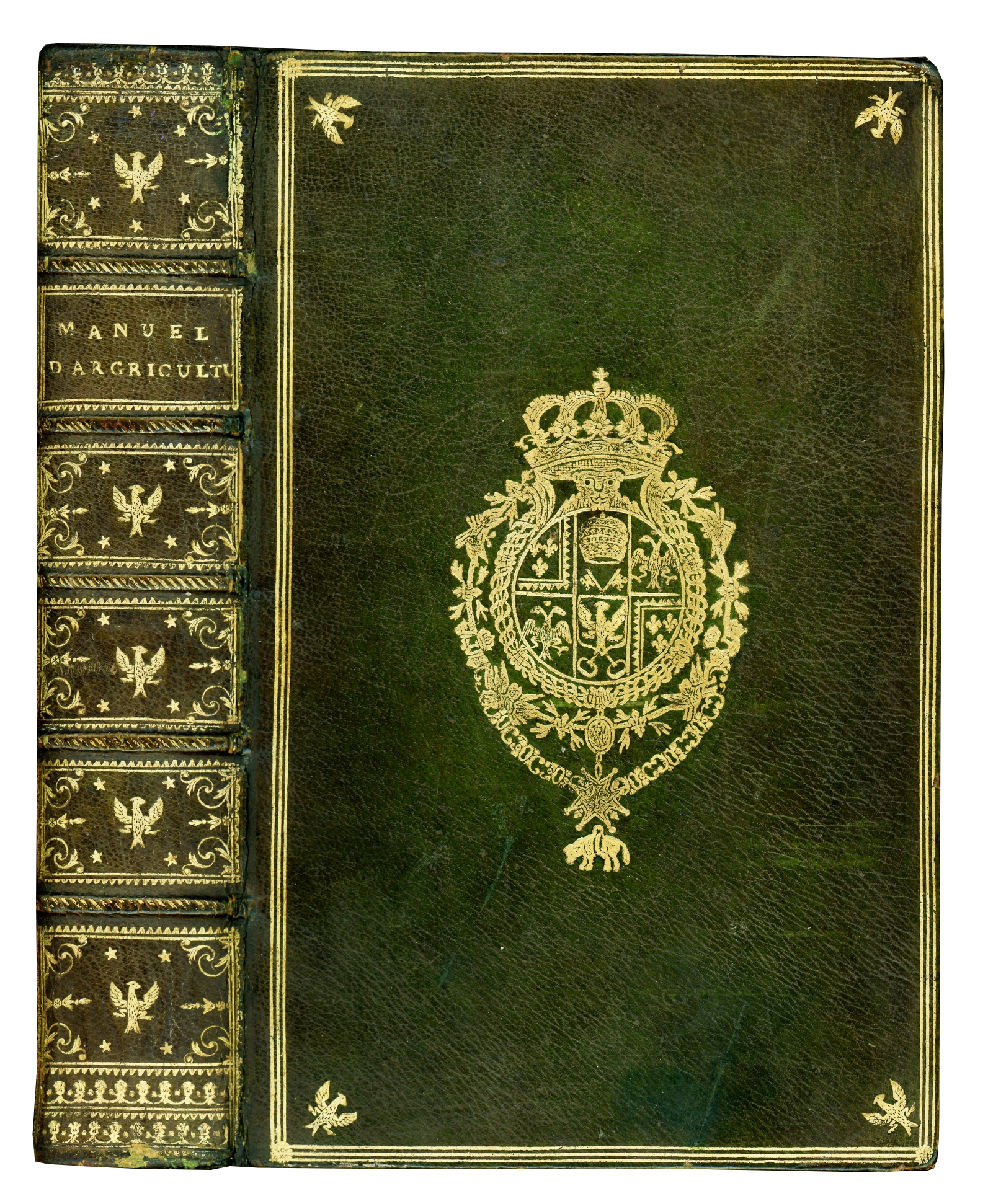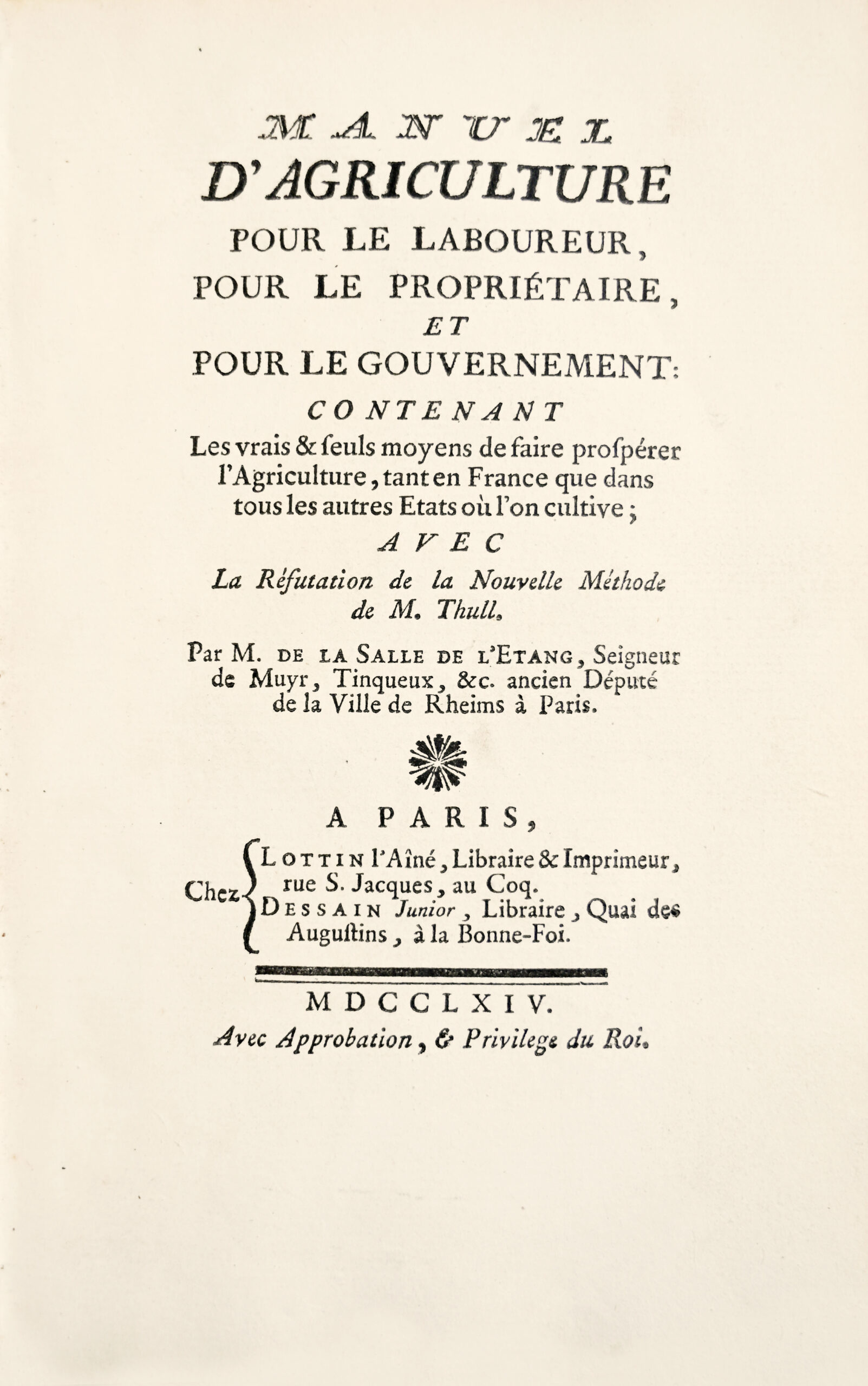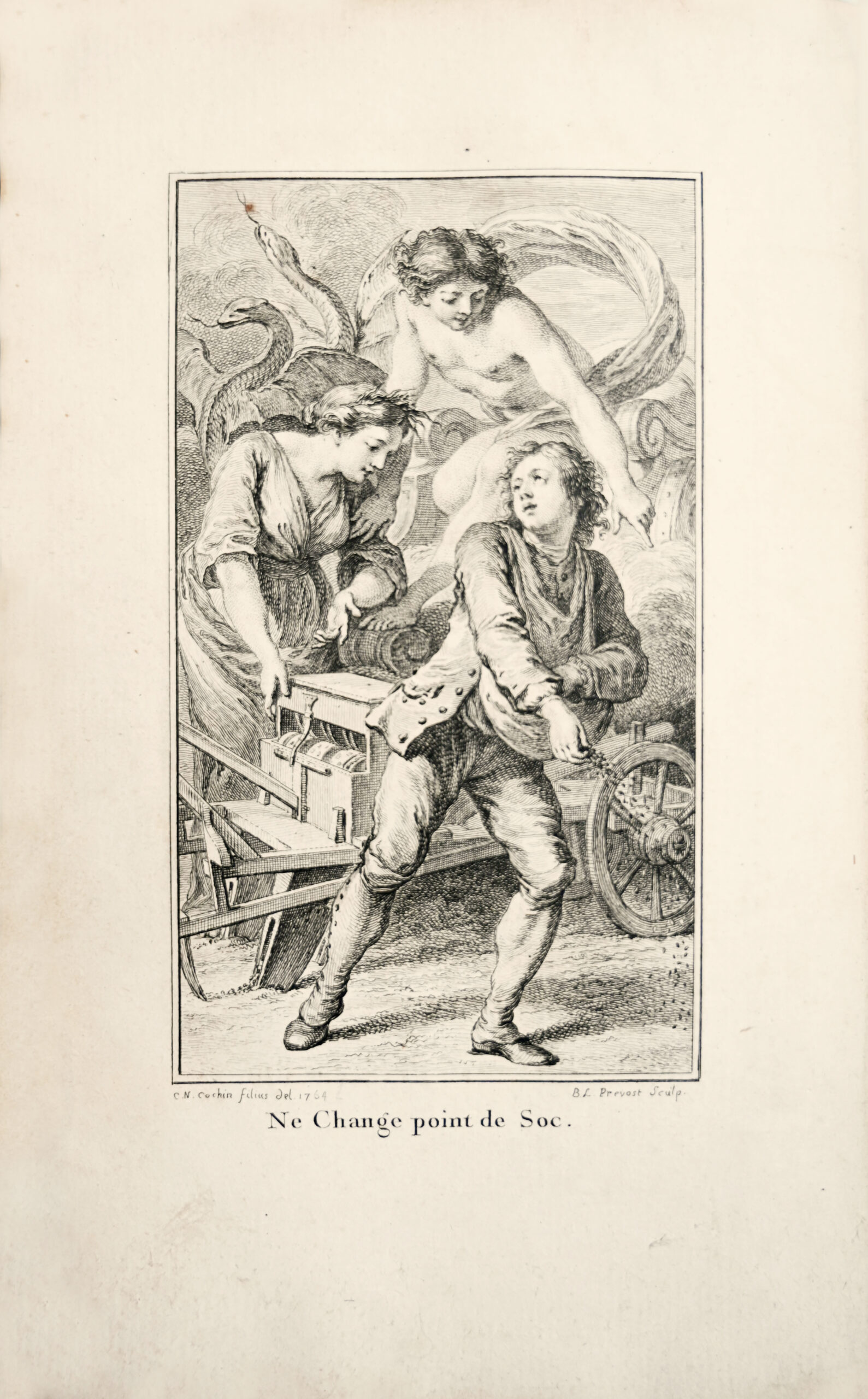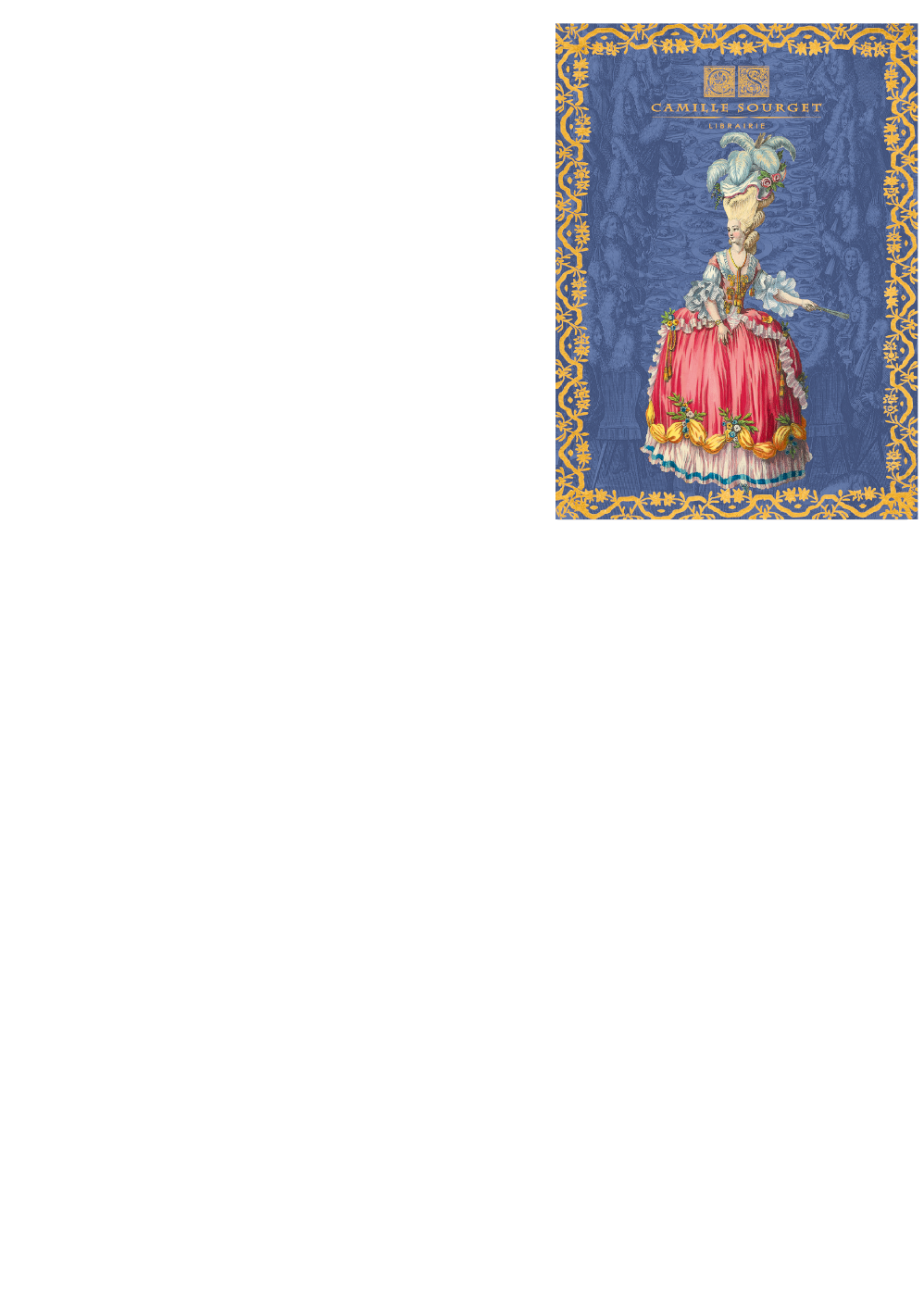Paris, Lottin l’aîné, Dessain junior, 1764.
In-8 of (2) ll. (half-title and title), xviii pp., (1) l. explanation of the plate, 584 pp. misnumbered 608, with a frontispiece engraved by Prévost after Claude-Nicolas Cochin, green morocco, spine with raised bands decorated with garlands and gilt compartments charged with alerions, triple gilt fillet framing on the covers with alerions in the corners, arms in the center, simple gilt fillet on the edges, gilt edges, gilt garland on the pastedowns, endpapers doubled with gilt star-patterned paper. Contemporary binding.
200 x 125 mm.
First edition of this treatise which specifically encourages the abandonment of the fallow system and the establishment of artificial meadows.
The work synthesized the experience of La Salle de L’Étang (1700-1765), particularly relevant for his native Champagne, where he promoted agriculture over a thirty-year period.
Not listed in INED (which only cites Les Prairies artificielles by the same author).
“Beautiful frontispiece by Charles-Nicolas Cochin fils, dated 1764.
One of the important texts of the agronomist La Salle de L’Étang (c. 1700-1765), who strongly opposed innovators such as Duhamel du Monceau and, mainly, the Englishman Jethro Tull, whose recently published method he criticizes for directly overturning local practices. Championing tradition, the author advocates artificial meadows, which he considers advantageous: the present work concludes with a ‘refutation of the new method of M. Thull.’ ‘La Salle considers that the traditional principles of cultivation, plowing, and fertilization, do not require modification. Crop rotation and the agricultural structure, however, must evolve to allow the inclusion of artificial sainfoin meadows, upon the gradual establishment of which the author bases his entire improvement system. To this end, he provides a detailed theoretical plan for applying meadows on an estate managed according to the new principles. La Salle de L’Étang is not only one of the first to systematize the use of artificial meadows, but he is also original in demonstrating how this transformation of the cultivation cycle will necessarily involve profound changes in the physical and legal structures of rural life. Thus, these artificial meadows, for which Duhamel had begun to advocate timidly in 1750, are no longer a secondary aspect but one of the essential pivots of cultivation.’” (Bourde, 1967).
“This manual, inspired by Olivier de Serres, condemns new practices imported from England – with the exception of artificial meadows – and seeks to preserve local practices and traditions. This is summarized by the frontispiece, extensively explained on an unnumbered page…” (Cochin et le livre illustré au XVIIIe siècle, 128)
“This work is wise and solid. It also survives so many other books that were announced with so much pomp only to fall with greater éclat. Its maxims are simple and natural. To plow well, sow at the right time, let the land rest, fertilize it, establish meadows, feed the livestock, relieve the laborers, not oppress them: this is what this Manuel d’Agriculture comes down to, already well known, and deserving of recognition.” (Journal général de France)
Precious and superb copy on large Holland paper with the arms of François III d’Este Modène (1698-1780), son-in-law of the Regent and twelfth Duke of Modena from 1737 until his death, with gilt arms stamped in the center of the covers.
The work belonged in the 20th century to Claude Hettier de Boislambert (1906-1986), deputy of La Manche and Chancellor of the Order of Liberation, with an ex-libris vignette pasted onto the first endpapers.
See less information
